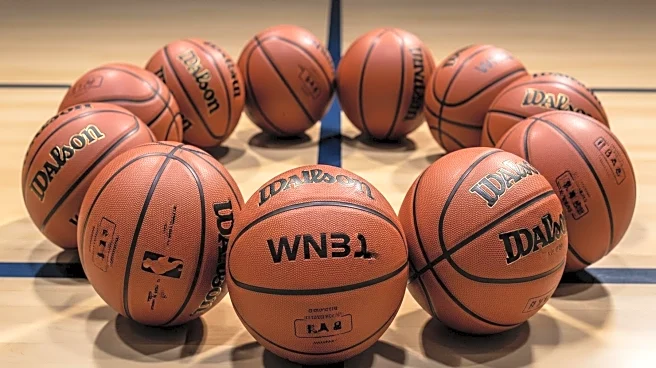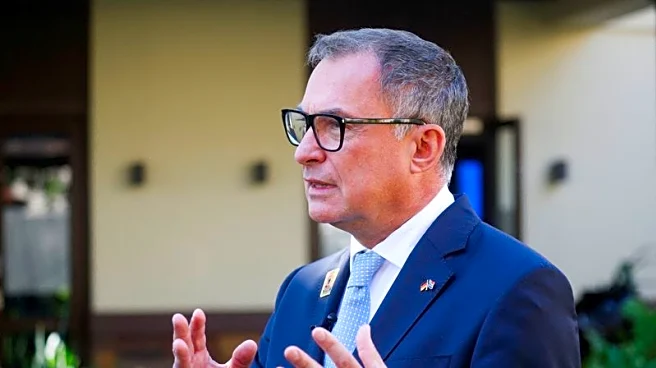What's Happening?
Minnesota Lynx star Napheesa Collier has publicly criticized the WNBA leadership, expressing dissatisfaction with the league's accountability and officiating standards. During her 2025 exit interview, Collier stated that the league's leadership is failing to uphold the standards expected by players and fans. Her comments have sparked a response from WNBA Commissioner Cathy Engelbert, who expressed disappointment but reaffirmed her commitment to the league's growth. Collier's remarks have resonated with other players, including Los Angeles Sparks' Dearica Hamby, who voiced support for Collier's bravery in addressing these issues.
Why It's Important?
Collier's criticism highlights ongoing concerns within the WNBA regarding leadership and officiating, issues that can affect the league's credibility and player satisfaction. Her comments have brought attention to the need for improved governance and transparency in the league's operations. The support from fellow players indicates a collective desire for change, which could lead to reforms in how the league is managed. Addressing these concerns is crucial for maintaining player trust and ensuring the league's continued growth and success.
What's Next?
The WNBA may face increased pressure to address the issues raised by Collier and other players. This could involve reviewing officiating standards and enhancing communication between the league office and players. The upcoming collective bargaining agreement negotiations present an opportunity to incorporate player feedback and improve league policies. The WNBA's response to these challenges will be closely monitored by players, fans, and stakeholders, potentially influencing the league's future direction.
Beyond the Headlines
Collier's outspoken stance reflects broader themes of athlete empowerment and the importance of player voices in shaping sports governance. Her actions may inspire other athletes to speak out on issues affecting their leagues, promoting a culture of accountability and transparency. The situation underscores the evolving relationship between players and league management, highlighting the need for collaborative approaches to address challenges and drive progress in women's sports.










